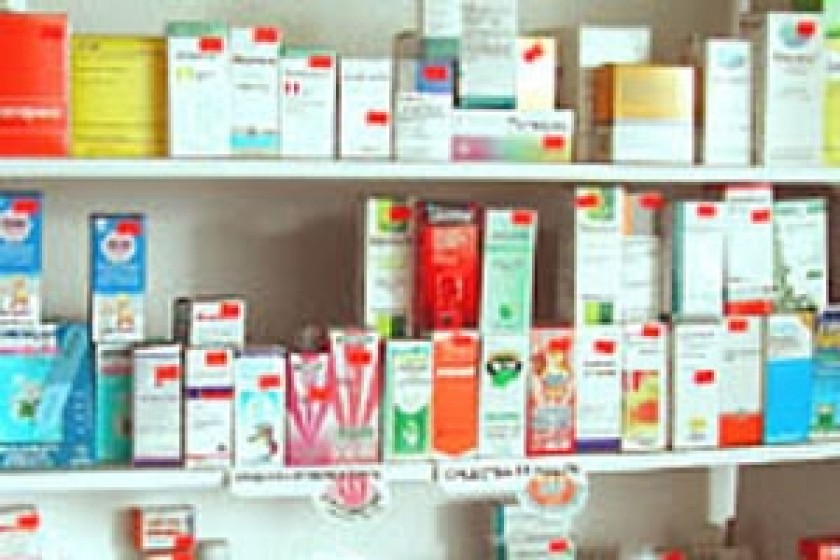
Humanitarian medicine was intentionally left to expire
Out of the entire amount of medicine that entered Armenia as humanitarian assistance in 2001-2002, one billion drams worth expired before it could be used. In May 2001, Artashes Bisharyan was appointed head of the Department of Medical and Technological Supply of the Ministry of Health. He is the founder of Deghabaza Yerevan, Ltd., and was also the chairman of the Association of Pharmacists at the time of his appointment. Between August 2001 and November 2002, Artashes Bisharyan's department was in charge of the distribution of medicine sent to Armenia through humanitarian channels. During the same period, one billion drams worth of medicine expired. The main reason for the expiration was the promotion of the local pharmaceutical business; in other words, drug distribution was delayed intentionally, to protect local businesses.
In 2003, drug distribution was carried out by the Center for Humanitarian Assistance of the Ministry of Health. 1.3 billion drams worth of medicine was distributed; 40 million drams worth expired.
In the fall of 2002, the Ministry of National Security carried out an inspection of the Center for Humanitarian Assistance and in December 2002 the results were sent to the Office of the Prosecutor General. In July 2003 an action was brought against the Center. In October 2003, the Prosecutor's Office requested an inspection by the Supervision Department of the Ministry of Finance.
What really happened? Arthashes Bisharyan was engaged in the pharmaceutical trade through his company Deghabaza Yerevan, Ltd. When there were stocks of specific drugs at the Center for Humanitarian Assistance, only a part of them were distributed among the republican clinics, in order not to harm companies that traded in these drugs.
|
Period
|
Distributing organization
|
Value of expired medicine |
| January-August 2001 | Ministry of Health Department of Medical and Technological Supply |
139,000,000 drams |
| August 2001 - January 2002 | Ministry of Health Department of Medical and Technological Supply (Head - Artashes Bisharyan) |
241, 682,853 drams |
| January-November 2002 | Ministry of Health Department of Medical and Technological Supply (Head - Artashes Bisharyan) |
687,433,400 drams |
| 2003 | Ministry of Health Republican Center for Humanitarian Assistance (Director - Armen Hovsepyan) |
40,000,000 drams |
Now let's see which drugs expired while the department headed by Artashes Bisharyan was distributing the humanitarian medicine. Zitromax is an antibiotic in widespread demand. In 2001-2002, 200 million drams worth of Zitromax expired. Tricor is for cardiac diseases and cholesterol. 300 million drams worth of Tricor expired as well. This drug is in widespread demand among the elderly; thus tens of thousands of pensioners were denied the possibility of getting this drug free of charge. Keppra is for psychiatric illnesses, and is in great demand in psychiatric hospitals. 54 million drams worth of Keppra expired. 55 million drams of Zofran (for cancer treatment) expired. Thus state officials wasted drugs that came to Armenia as humanitarian assistance in order to promote their own and their friends' businesses.
We haven't yet been able to find out which specific organizations sent these and similar drugs, or whom the State purchasing agency bought these drugs from.
The Republican Center for Humanitarian Assistance of the Ministry of Health is in charge of the humanitarian assistance sent to the Ministry of Health by the United Armenian Fund (USA) and other donor organizations - it stores, itemizes and distributes the assistance. All drugs and medical supplies are registered and catalogued, which makes it possible to check the availability and the quantity of the remainder of any drug at any given moment.
The December 18, 2000 Order # 726 of the Minister of Health established procedures for the distribution of humanitarian assistance. The ministry itself carried out the distribution. The donor organizations sent the lists of the available medicine in advance; they were examined, compared with the demand by the ministry, and sent back to the donors. The lists of the humanitarian medicine and medical supplies imported to Armenia were approved by the Ministry of Health. In this way, there were to be no surpluses of any given drugs.
To be continued.
 Videos
Videos Photos
Photos




Write a comment